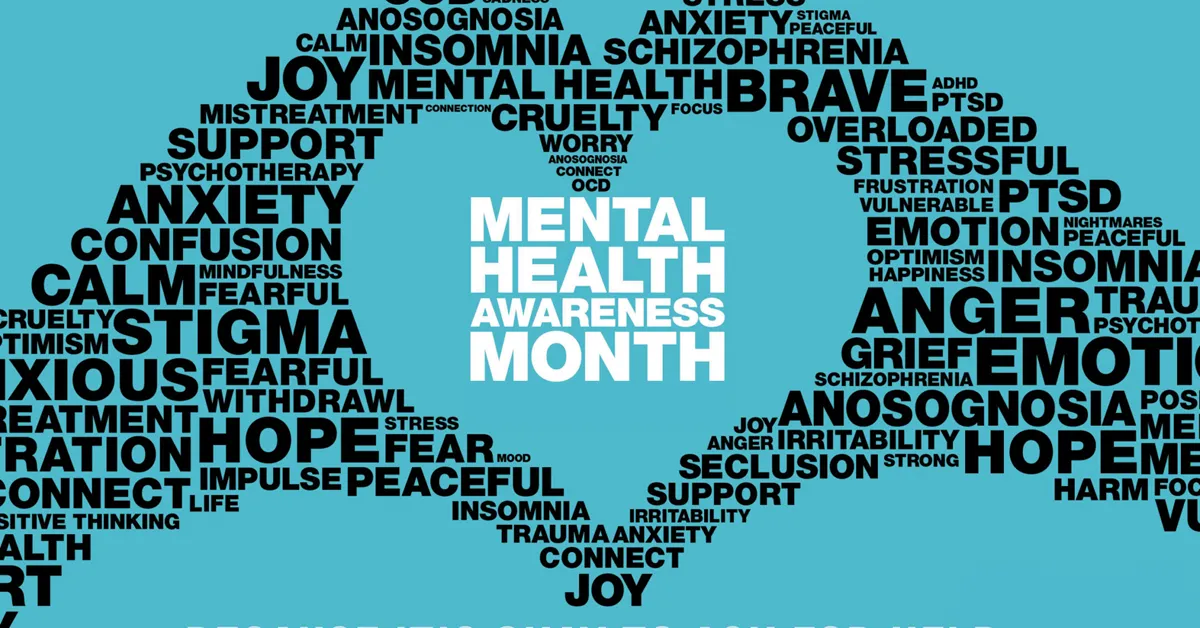Comprehensive Inpatient Mental Health And Wellness Providers for Effective Treatment
Inpatient mental wellness services stand for an essential part of the healthcare system, supplying a intensive and structured atmosphere for individuals experiencing serious emotional distress. Checking out the nuances of this continuum exposes significant effects for both specific healing and broader psychological wellness results.
Understanding Inpatient Mental Health Providers
Inpatient mental health solutions offer crucial support for people experiencing serious psychological distress that can not be handled successfully in an outpatient setup. These services are designed to supply an extensive degree of care in an organized environment, often within a health center or specialized facility. Patients confessed to inpatient programs generally present severe symptoms, such as self-destructive ideation, severe anxiety, or psychosis, necessitating day-and-night monitoring and treatment.
The admission procedure generally includes a thorough analysis by mental wellness experts, that assess the individual's psychological state, history, and immediate requirements. When admitted, individuals take part in a variety of restorative methods tailored to their certain needs, including medicine monitoring, individual treatment, and group sessions. This alternative strategy aims to support the individual's problem, promote security, and foster coping abilities.
Inpatient psychological health services not only address instant wellness concerns but likewise offer as a bridge to recurring treatment. By offering a controlled atmosphere, these solutions promote the development of treatment plans that can be continued in outpatient settings, therefore making sure a continuum of care and enhancing long-term end results for individuals with intricate psychological wellness requirements.
Trick Elements of Effective Therapy
Reliable therapy in inpatient psychological wellness solutions consists of numerous vital components that foster recovery and stablizing. Primarily, an extensive assessment is important to determine the individual's specific needs and challenges. This assessment educates the advancement of a tailored treatment strategy, which works as a roadmap for intervention.
Another critical part is the multidisciplinary group method. Collaboration among psychoanalysts, psycho therapists, nurses, and social employees makes sure that different perspectives add to the individual's care, boosting the efficiency of treatment. Evidence-based healing techniques, such as cognitive-behavioral therapy (CBT) and dialectical behavior modification (DBT), are also important, offering organized methods that address maladaptive thought patterns and behavior issues.

Lastly, a concentrate on aftercare planning is crucial to make certain a smooth change to outpatient services, decreasing the danger of relapse and advertising long-term health. These collective parts produce a reliable treatment framework within inpatient psychological health and wellness services.
Benefits of Comprehensive Treatment

Extensive treatment in inpatient psychological health services supplies numerous benefits that substantially boost patient outcomes. One of the main benefits is the all natural approach to treatment, resolving not just the psychological symptoms however likewise the physical, social, and psychological requirements of people. This thorough assessment enables tailored interventions that advertise total health.
An additional advantage is the assimilation of multidisciplinary groups, which cultivates cooperation amongst medical care specialists. This joint atmosphere makes sure that clients obtain coordinated care, minimizing the threat of fragmented therapy and improving communication among caretakers. Thorough treatment assists in continuity of services, permitting for smooth transitions from inpatient to outpatient setups, which is critical for lasting healing.

Finally, the structured environment of comprehensive inpatient care gives a secure room for individuals to take part in therapeutic activities, aiding them establish dealing methods and durability. Collectively, these advantages add to a lot more effective treatment and boosted high quality of life for individuals experiencing psychological health and wellness situations.
Evidence-Based Restorative Strategies
In the world of mental health therapy, evidence-based restorative approaches play a crucial duty in making sure that clients obtain efficient and scientifically sustained interventions. These strategies integrate the most effective readily available research study with clinical expertise and individual values, cultivating a tailored therapy experience that deals with specific requirements.
Cognitive Behavior Modification (CBT) is one of the most commonly identified evidence-based methods, focusing on recognizing and transforming negative thought patterns and habits. This organized approach has demonstrated efficiency in dealing with problems such as anxiety, ptsd, and anxiousness. Similarly, Dialectical Behavior Modification (DBT) is especially efficient for individuals with borderline character condition, highlighting the advancement of psychological guideline and social efficiency skills.
In addition, medicine monitoring is often an integral part of evidence-based therapy, as psychotropic medicines can minimize signs and improve overall performance. Collective care models, which entail multidisciplinary groups, additionally enhance the efficacy of inpatient solutions by making certain detailed assessments and continuous surveillance.
Inevitably, the combination of evidence-based therapeutic strategies not only promotes favorable medical outcomes yet likewise empowers people, promoting a sense of company and resilience in their psychological health and wellness trips.
Transitioning to Outpatient Support
The transition from inpatient psychological health solutions to outpatient support notes an essential stage in an individual's recovery trip. This period needs careful preparation and coordination to make sure continuity of treatment and to mitigate the dangers of regression or mental health services dilemma. Reliable discharge planning ought to begin early in the inpatient keep, involving a multidisciplinary group that consists of psychoanalysts, psychologists, registered nurses, and social workers.
Crucial element of a successful change include the growth of an extensive aftercare strategy tailored to the individual's details needs. This plan needs to outline follow-up visits, drug management, and restorative treatments, along with recognize community resources and assistance teams that can facilitate continuous healing.
In addition, patient and household education and learning is essential throughout this phase. Understanding the indications of prospective troubles and the importance of adhering to treatment can equip individuals and their assistance systems.
Normal follow-up and review of the outpatient strategy are vital to deal with progressing difficulties. By cultivating a joint partnership in between outpatient and inpatient suppliers, the likelihood of continual recovery increases, ultimately enhancing the patient's quality of life and reducing the risk of readmission.

Final Thought
In recap, extensive inpatient psychological wellness services provide a crucial framework for dealing with serious emotional distress with a multidisciplinary strategy. By integrating evidence-based therapies, promoting a structured atmosphere, and advertising family members involvement, these solutions boost therapy performance. The focus on security and the development of coping skills not only aids in immediate healing however likewise assists in a smoother change to outpatient treatment. Inevitably, such thorough treatment is vital for long-term mental health and well-being.
The admission process typically involves a comprehensive analysis by psychological health and wellness experts, who review the person's mental state, history, and prompt demands.Efficient treatment in inpatient psychological health and wellness services comprises several vital elements that promote recovery and stablizing.Extensive care in inpatient psychological health and wellness services supplies various benefits that dramatically improve client end results.The shift from inpatient mental wellness solutions to outpatient assistance marks a critical stage in a client's recuperation trip.In summary, detailed inpatient mental wellness services supply a vital structure for attending to severe mental distress through a multidisciplinary technique.